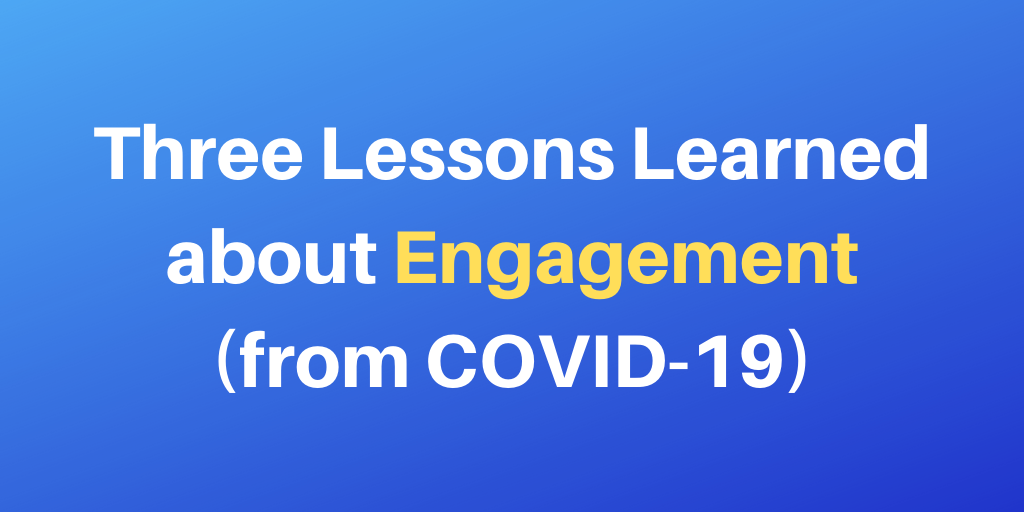3 Lessons Learned about Engagement (from COVID-19)
 This is where I begin:
This is where I begin:
I am an experimenter. I am also a learner.
I am never content with the way we've always done it.
I am always looking for an even better outcome, a more effective method, a more productive strategy or tactic.
Four things I know:
I am convinced that my ministry "is perfectly designed to produce the results we are currently experiencing (Andy Stanley)."
At the same time, I know for sure that "if you want to reach people no one else is reaching, you've got to do things no one else is doing (Craig Groeschel)."
While I'm at it, I know that "if you always do what you've always done you'll always get what you've always got (Henry Ford)."
And finally, "Experience is not the best teacher; evaluated experience is the best teacher. Reflective thinking is needed to turn experience into insight (John Maxwell)."
Experience is not the best teacher; evaluated experience is the best teacher. Reflective thinking is needed to turn experience into insight. —John Maxwell Share on X
Three lessons learned about engagement from COVID-19:
1. Loneliness is a motivator and isolation is often a powerful prompt.
We are born with an innate desire to belong. Yes, some people are more introverted and others are more extroverted. That difference does not heighten or lessen the internal desire to belong.
Sheltering-in-place and social distancing have intensified awareness of the longing to belong.
Providing a simple way to connect has caught the attention and generated a response.
Note: We changed our language around connection to "I need some friends." You can see it right here. We have a large enough sample size to know that the largest response has come from single mothers and single women.
2. Offering connection immediately after an online service has been ineffective.
We have tried several versions of this tactic. Initially we believed making it from the online service into our virtual "guest central" was too difficult. After trying several versions we now believe the people who most need to find friends aren't motivated enough to try and find their way from the anonymity of the online service into a virtual face-to-face meeting.
Note: Our current experiment is to make personal connection via a follow-up phone call an early step in the engagement pathway (for those who have texted "takingastep" to 94090.
3. The availability of an online small group connection is a draw to some unconnected people.
Our midweek connecting opportunity has consistently generated sign-ups, but our show-ups remain in the less than 50% category. So far, we have only offered a connecting opportunity 3 or 4 days ahead of time. Sign-ups often happen on the day of the event with no time for a reminder.
Note: We are shifting strategies to promote joining a 5 week group (with a study that goes along with the weekend message series).

